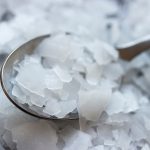Vitamin K is an essential, fat-soluble nutrient that our bodies need for functions such as healthy blood clotting. It comes in two forms:
- Vitamin K1, (phylloquinone) found in green leafy vegetables and some vegetable oils
- Vitamin K2, (menaquinone) found in dairy products, fermented foods, and animal products

Our bodies produce some vitamin K in the colon but most get the needs they need directly from their diet.
Why do you need vitamin K2?
Both vitamins K1 and K2 ensure healthy blood clotting, preventing excessive bleeding and bruising when blood vessels are injured.
Why should vitamin D be taken with vitamin K2?
Current research shows the important synergistic relationship between vitamins D3 and K2. Taking vitamin D3 with vitamin K2 helps ensure that the calcium carried by vitamin D is absorbed by the bones where it is needed, rather than accumulating in deposits in the arteries. Vitamin D also is a fat-soluble vitamin, and vitamin K helps the body use calcium by transporting it to the bones. Increasing vitamin D intake without sufficient vitamin K can cause calcium levels to rise without the ability to use it effectively, which increases the risk of deposits in the arteries and soft tissues. This is dangerous because it can lead to heart disease, heart attack, and even stroke.
A recent study revealed a slower progression of calcification in those taking both vitamin K2 and vitamin D compared to those taking vitamin D alone. In fact, K2 and D protected against cardiovascular calcification, while group D alone did not.
Because vitamin D is so effective at improving calcium levels, taking it alone could work to increase calcification in your arteries instead of strengthening your bones, so be sure to include K2 in your Vegamega vitamin D supplement regimen!








